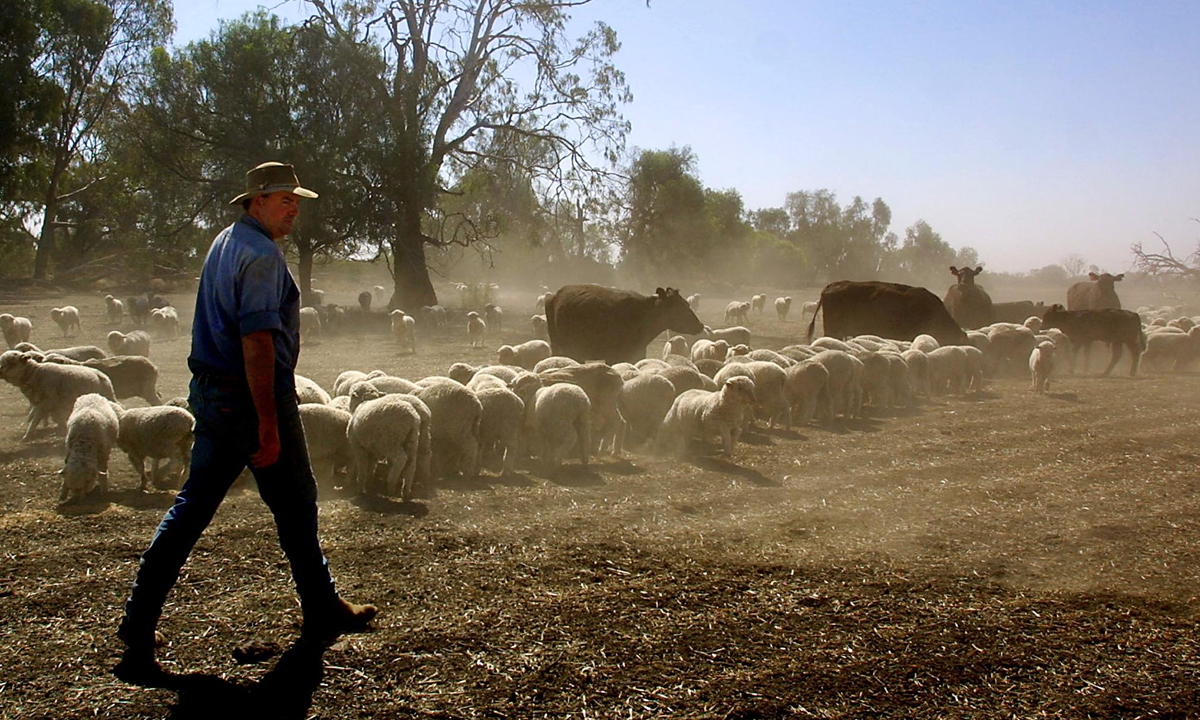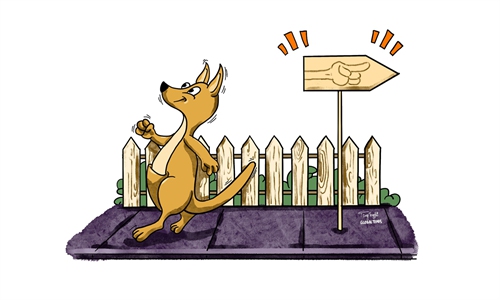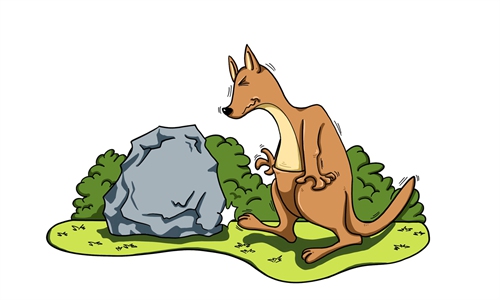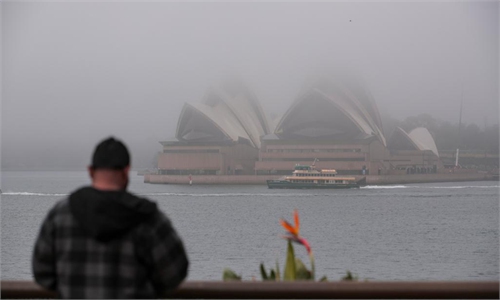
An Aussie farmer inspects his animals at the Raby Stud near Warren in north-eastern New South Wales, Australia on November 17, 2002. Photo: AFP
In an opinion piece published in The Australian newspaper on Monday, former Australian Prime Minister Tony Abbott claimed when it came to Australia's trade policy the "answer to almost every question about China is India."
"Because trade deals are about politics as much as economics, a swift deal between India and Australia would be an important sign of the democratic world's tilt away from China, as well as boosting the long-term prosperity of both our countries," He wrote.
Abbot just completed his visit to India last week as Australia's special trade envoy, laying bare Australia's eagerness to strike a free trade deal with India. Australia's ongoing interest in India is of course understandable given its trade tensions with China, and the country has the right to sign free trade agreements with any country it chooses. Yet, there is no need for politicians to exaggerate the impact of a potential deal as code for displacing China.
While some Western media outlets have long hyped up India's economic potential, which was said to help the so-called "democratic world" to cut their economic reliance on China, it is not hard to see that India's chance of replacing China's role in the global industrial chain remains small.
Even if Australia sees India as a potential market alternative to China, it is highly questionable whether India has the willingness to open its domestic market to Australia. Since India and Australia do not share a highly complementary trade structure, the trading relation that Australia hopes to develop may not be in the interest of India.
While there is indeed a strong political will to push the two sides to strengthen economic and trade cooperation, it is worth noting that the cooperation in Indians' minds may not be the same thing as that envisioned by Australia when it comes to specifics. India has a long history of pursuing highly protectionist economic policies, sealing off its domestic industries and companies, so it is likely looking forward to selling more products to Australia but not necessarily buying more. That's the fundamental reason why talks between India and Australia on a Comprehensive Economic Cooperation Agreement which started in 2011 have gone nowhere.
Take agriculture as an example. Australia is a major exporter of agricultural products, while India is also known for its protection of its own domestic agricultural industry. One of the main reasons India rejected the chance to join the Regional Comprehensive Economic Partnership was to protect its farmers' interests as it feared that the inflows of agricultural products from Australia and New Zealand would be devastating for its agriculture sector, which accounts for about 60 percent of India's working population.
Last but not least, is India really the answer to China-Australia trade tensions? Raw numbers bear out the facts. Australia's exports to China reached about $110 billion in 2020, achieving a record trade surplus of $55.47, while two-way goods and service trade between Australia and India was $24.4 billion during the same period



